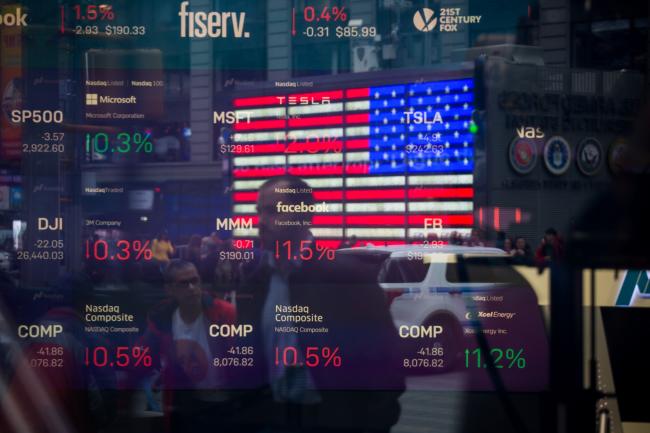(Bloomberg) -- We are hours away from additional tariffs getting slapped on Chinese goods, with the U.S. and China in pivotal trade negotiations. Fear has gripped markets and the level of sensitivity to any trade headline is extremely high.
A tweet that Donald Trump, Steven Mnuchin and Robert Lighthizer were in a meeting to discuss progress completely erased early declines in U.S. stock-index futures and contracts are now up on the day. U.S. stocks also pared Thursday morning declines right after Trump said he received a letter from Chinese President Xi Jinping and that the two may speak on the phone. (Though, benchmarks still closed lower.)
Still, stock markets across the world have been in thrall to Trump this week and the MSCI AC World Index has lost $2.1 trillion in value. Japan’s Topix index has erased more than half of its 2019 rally. The S&P 500 Index is poised for its worst week since before Christmas after falling for a fourth straight session. Foreigners are dumping Chinese stocks before the tariff deadline -- they’ve net sold an average of 4.4 billion yuan ($640 million) of mainland shares a day through trading links with Hong Kong this week.
Fear gauges have spiked: The VIX Index, Nikkei Volatility Index and HSI Volatility Index are all hovering at levels not seen since January. Major banks and money managers have been weighing on the chance of the a trade deal, the impact on stock markets and how investors should play any scenario:
- Pimco’s Manny Roman joined the 80% club -- both Roman and JPMorgan (NYSE:JPM) CEO Jamie Dimon see an 80% chance of a U.S.-China trade agreement
- Goldman’s Alec Phillips saw a 60% chance that higher tariffs will go into effect and added that he didn’t expect talks to devolve much further
- Wells Fargo (NYSE:WFC) equity derivatives strategist Pravit Chintawongvanich recommends using the two largest ETFs tracking U.S. and China markets: Sell protective puts on IWM while buying them on FXI
- Pictet Asset Management published a report yesterday that said its tactical strategy has moved to reduce equities. The firm is now more cautious toward Chinese and Hong Kong shares
There’s a plethora of investment suggestions out there. Today’s lunch break for most of Asia may be one where no one takes a break at all.
